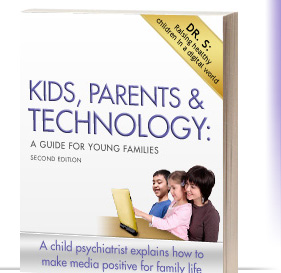Telling Preschoolers About War
Eitan D. Schwarz, M.D., D.L.F.A.P.A., F.A.A.C.A.P.
CLINICAL ASSISTANT PROFESSOR, FEINBERG SCHOOL OF MEDICINE
NORTHWESTERN UNIVERSITY
CHICAGO, IL
Copyright © 2001, 2002 Eitan D Schwarz. All rights reserved. This handout may be copied and distributed only for non-profit educational use.
Q: I am having trouble explaining why war is OK to my nursery school class. They all say “we were told that we are never to hurt each other, no matter what.”
A: WHAT TO DO: There is no complete and satisfying way to discuss war with very young children, so it should be avoided. You may answer the question simply by saying casually, “Sometimes nations don’t agree and have fights, and it is not always easy to understand, but children should not hurt each other,” and leave it at that, going on to have children review together how they are safe, since the question may mask or trigger anxiety.
If a child is preoccupied with war, check with parents about what is happening at home or suggest they restrict exposure to TV news, etc. It is important to remind children that they deserve to be safe from war and from violence at school, home and community. Adults in children’s lives are capable of protecting them and have a duty to do so. Sadly, a teacher must also be prepared to observe unusual agitated or withdrawn behavior in some children or hear spontaneous descriptions of domestic or community violence when current events are discussed. The teacher must act definitively to protect the child appropriately.
FACTORS LIMITING TEACHER AND CHILD: There are too many factors that limit a nursery school teacher’s ability to answer this question effectively. Preschoolers are not yet very capable of making fine distinctions about abstract matters. A teacher may be challenged to reduce concepts to simple language and may not always succeed. Neither are young preschoolers yet skilled at abstract language or thought or at understanding social or moral matters that are too relative and subtle and far from their immediate tangible world. That is a mixed blessing because they can accept logical inconsistencies more easily than grownups. Neither do they grasp the finality of death.
A teacher’s task is also challenging because the problem of war is actually part of the general issue of socially sanctioned violence (for example also capital punishment, etc.), and attitudes vary among groups and families in our diverse society. A teacher must be sensitive to such diversity and must ultimately defer to the child’s family and social group. Additionally, the topic of war cannot be contained in a simple format, but must form one thread in the entire fabric of teaching about interpersonal violence integrated into the curriculum.
DEVELOPMENTAL NEEDS: As “The Emperor’s New Clothes” teaches us, young children do have wonderfully honest and open ways of pointing out paradoxes and inconsistencies in our value systems. Utterances “from the mouths of babes” can challenge thoughtful adults to examine values and attitudes developed over a lifetime. We can idealize this phenomenon and attribute to children a type of wisdom. Unfortunately, children’s ability to ask questions is not always matched by an equal ability to understand answers, or even the complex nature of the questions. Their charming naivety is just that — naivety — not true wisdom that comes with maturity. We must always keep that in mind, and not burden children with expectations for more.
Additionally, preschoolers must be protected from over-stimulation and feeling frightened or unduly anxious. It is already the age for scary monsters and other symptoms of anxiety. They are coping with their own developmental tasks and family matters and do not have psychological reserve for much else. They will have plenty of time to discover that there exist evil and injustice, and they deserve to form an emotional core of optimism and hopefulness about life.
BE ALERT: If a child continues to be preoccupied or distressed or to show persistent signs of anxiety such as changes in behavior, increased aggression, nightmares, clinginess, headaches, tummy aches, or shyness, poorer concentration, sleep, or appetite, consider an evaluation by a mental health professional who specializes in caring for children. While the majority of children are safe and have loving families, there are some who have been hurt by adults or witnessed domestic violence. The approach to these would be more complicated, and they require professional help from a mental health professional specializing in children.



